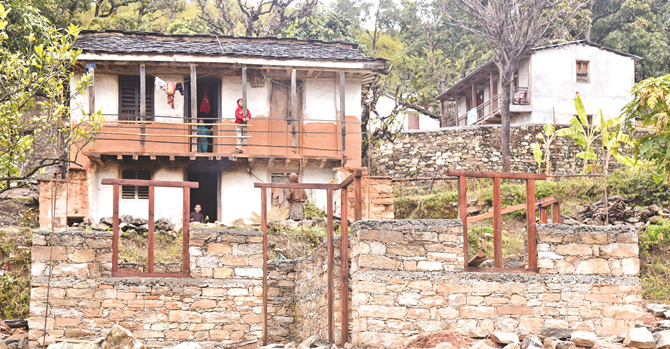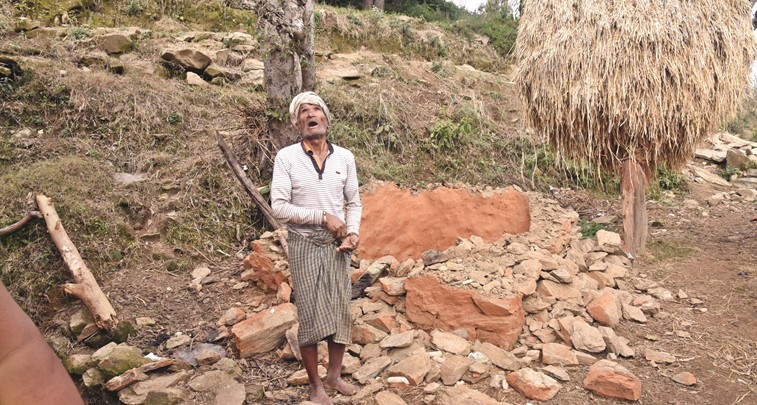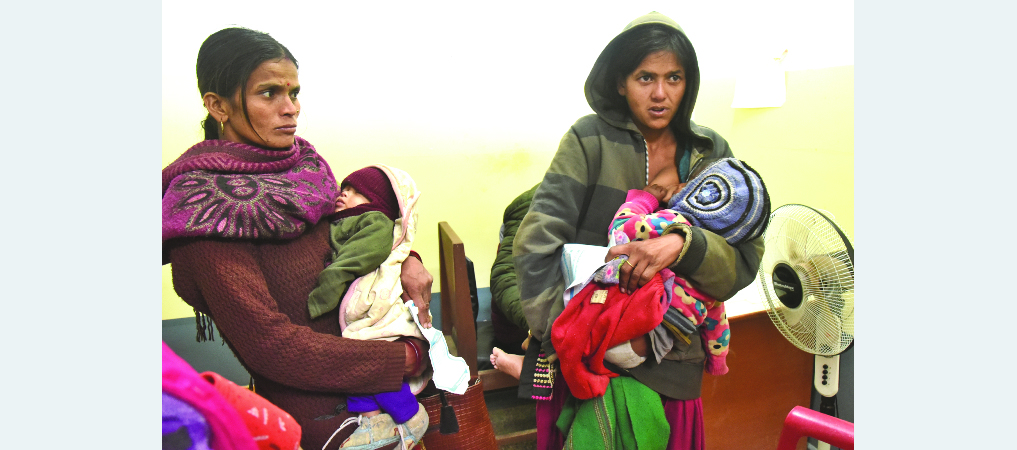Miyapur village has no Chhaugoth

By Ajita Rijal
Achham, Feb. 9: Achham is termed as a district with the highest number of Chhaugoth (a small shed designated for menstruating women and girls away from house). However, not many people know one particular village in the district has neither Chhaugoth nor its women stay outdoors during the periods.
Located in Sanfebagar Municipality-8, Miyapur of Chudeli Village, also known as Miyatol, does not have a single Chhaugoth.
Miyapur, which has majority of Muslim residents, has not had any presence of Chhaugoth, according to Shambhu Miya, a teacher at Madrasa Darul Kurwan Primary School.
Having lived amongst the Hindus for long, the life style of the people of Miyapur looks similar to theirs. Nevertheless, they are totally different in terms of the Chhaugoth practice, which used to be widespread in Achham.
“I have seen my neighbour Hindu women stay in Chhaugoth during menstruation, however I never had to stay in the Chhaugoth,” said Yasodha Miya, 22.
“None of the Miya families here have Chhaugoth. We stay indoors and also eat regular food during periods,” shared Yasodha. Though there is no tradition of Chhaugoth, women do hesitate to use the kitchen during menstruation,” she added.
Another peculiarity of this village is that the local Muslim women also do not wear the Burka as do women residing Terai Muslim community.
At first glance, they may not look like Muslims. Since they have lived for long amongst the Hindu community, their way of life certainly shows influence of the Hindu traditions. Yet, Muslims certainly have different religious practices, said Keshar Miya, a local leader.
Mayor of Sanfebagar Municipality, Kul Bahadur Kunwar, said that Miyapur, with around 25-30 households of Muslim community, does not have a single Chhaugoth.
Mayor Kunwar said, “Muslim community is said to living here for 800 years and the community has a good tradition of not practicing Chhaugoth; though their lifestyle has Hindu influence, it is good that Chhaugoth practice has not touched them.”
Local Muslim leader Keshar Miya said that they lived very closely and warmly with the majority of Hindu families, but as a minority in the village they have very little influence. They wish the Hindus to follow their good practice of not keeping women in the Chhaugoth.
“Our community’s women understand that staying home during periods is safe; we do not have any restrictions to daughters and daughters-in-law during menstruation, and we may not even know when they have periods,” he added.
Historically, the Muslim families migrated from the Terai plains upward to the hills for selling bangles and women’s beauty accessories, and thus reached Achham, said Keshar Miya. The then Kunwar rulers of Achham utilised the Muslim men’s weapon-making skills and later helped them to settle here, he added.
Since they sell bangles, the village then came to be known as Chudeli. As time passed by, and as they stopped selling bangles, the Miya families then named the village ‘Miyapur’ according to Keshar Miya.
So far around 5,000 Chhaugoth have been destroyed in Achham district after the commencement of recent government drive to destroy the menstrual huts.
Recent News

Do not make expressions casting dout on election: EC
14 Apr, 2022
CM Bhatta says may New Year 2079 BS inspire positive thinking
14 Apr, 2022
Three new cases, 44 recoveries in 24 hours
14 Apr, 2022
689 climbers of 84 teams so far acquire permits for climbing various peaks this spring season
14 Apr, 2022
How the rising cost of living crisis is impacting Nepal
14 Apr, 2022
US military confirms an interstellar meteor collided with Earth
14 Apr, 2022
Valneva Covid vaccine approved for use in UK
14 Apr, 2022
Chair Prachanda highlights need of unity among Maoist, Communist forces
14 Apr, 2022
Ranbir Kapoor and Alia Bhatt: Bollywood toasts star couple on wedding
14 Apr, 2022
President Bhandari confers decorations (Photo Feature)
14 Apr, 2022







